A friend sent this to me. When you start your own business, it is really important to advertise that business using business cards that are professional and reflect your personality and your qualifications. This error is inexcusable.
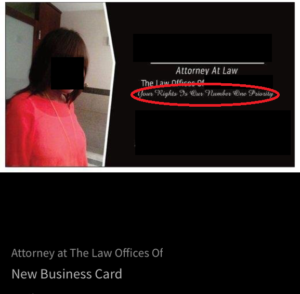
A friend sent this to me. When you start your own business, it is really important to advertise that business using business cards that are professional and reflect your personality and your qualifications. This error is inexcusable.

I was recently looking up some information on the State Bar of Arizona website looking for groundbreaking women attorneys in Arizona for potential speaking engagements. As I read through them all, I noticed that two words completely changed one sentence. Lisa Loo is the first Asian American WOMAN PRESIDENT of the State Bar, not the first Asian American of the State Bar. Those two words make quite a difference.
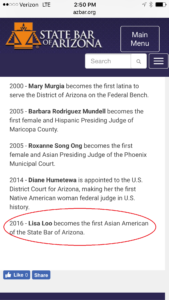
While trying to earn my country certification at the Country Music Hall of Fame in Nashville, I saw this screen:
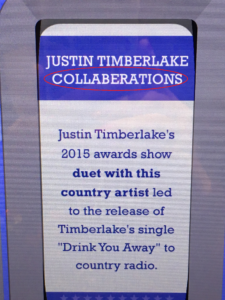
It should be “Collaborations.”
A blog reader sent this to me from her local newspaper. This is another example of people not reading headlines–or headings in legal documents. And if you have the Word setting turned on to not check words in all caps, turn that off right now! That will help you find errors in headings and important documents that use all caps for titles.
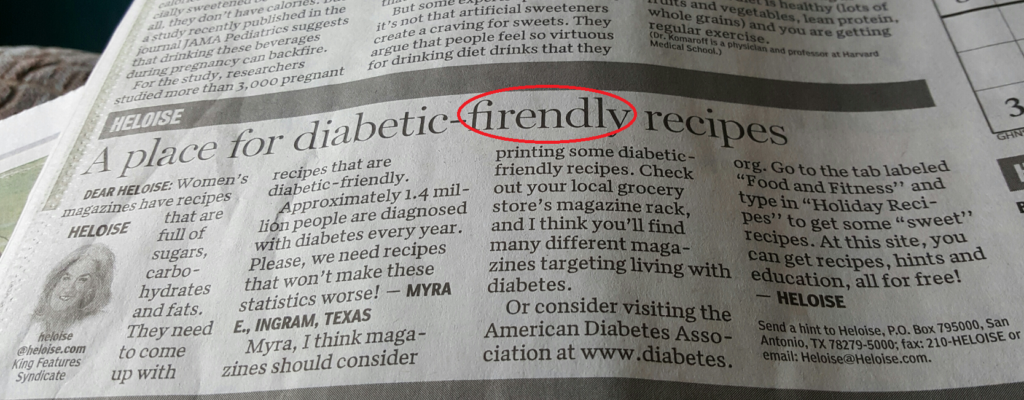
If you find something that is Grammar Giggle-worthy, take a picture and send it to proofthatblog@gmail.com.
Menus are a great place for finding Grammar Giggles. Here is a great example. This is another issue with an apostrophe and an issue with using “compliment,” which means to praise someone, and “complement,” which means to add something that enhances or improves it. While I’m sure they want you to COMPLIMENT them on all their food, I think they mean that it enhances all of their food.
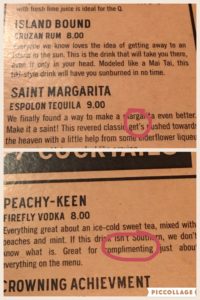
A reader shared this from a sign in an airport. This is something that spell check or reviewing quickly will not find because the word is not misspelled–it’s just the wrong word. But she did say that the “thing” actually sliced up an excellent sandwich!
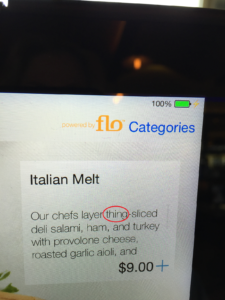
I saw this sign on a recent trip. If you squeeze a lemon, mango, or strawberry, it is squeezed. If you just squeezed said lemon, mango, or strawberry, it is fresh squeezed.

I recently went and played bingo at a local casino. I love bingo, but am not an expert and need the instructions for each game. In other words, I actually read the instructions.


A reader sent this to me from her research on the United States Patent and Trademark Office website.
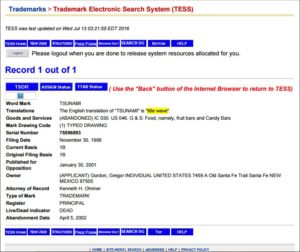
According to Merriam-Webster online dictionary, a “tidal wave” is:
: a very high, large wave in the ocean that is often caused by strong winds or an earthquake
: a very large amount of something
while “title” is:
: the name given to something (such as a book, song, or movie) to identify or describe it
: a published book
: a word or name that describes a person’s job in a company or organization
so “title wave,” unless it is the name of a book, song, or movie (in which case it should be capitalized), is incorrect. The proper term in this case should be “tidal wave.”
A reader sent me this picture that she saw in a retail store next to her office. I’m not even sure what it is they’re trying to say here.
